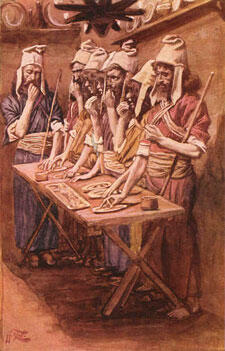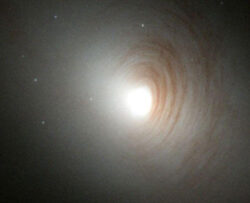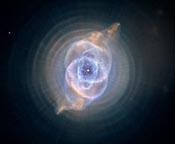The Path - Part 2: Exodus
A journal of one fool’s journey, and the faith which found him.

It happened by accident.
Really.
Just off the lot, spanking new, a canary yellow convertible Beetle with black convertible top: her first car. She never saw the woman as she backed out of the parking stall. Fender-bender, to be sure–but deeply distressing, as only the first wound on new wheels can be. “Why?!” her muttered prayer, angry yet submissive by will, seeking to understand what could have no meaning beyond divine capriciousness. Her unintended target, an older women, gracious and composed, proved more merciful than mad–and by twists quite serpentine, two women met by accident that day, mangled fenders forging new friendship.
The older woman’s daughter–a remarkable young lady who lost her sight in early adulthood–soon became Cynthia’s close friend as well. And before long she was introduced by this new friendship to another woman–who was a medical student.
Linda the future physician, was funny, smart, sassy, and tough as nails. One of only ten women in a medical school class of 200, she could throw a punch as well as take one–a highly useful skill in the days before robust friendships between men and women were castrated by PC speech codes and university thought police. She excelled in the dark, sarcastic humor of the urban Northeast–a skill I too had learned in home and high school, a drop-forged survival shield guarding wounded spirit with sarcastic put-down humor.
The blind date with a mutual friend–Linda and Bill, Cynthia and I–was a disaster, although I failed to recognize it at the time. Sharp, sarcastic barbs soared through the room like barroom darts: Linda, Bill and I trading mutual put-downs passing for party talk. I barely spoke with Cynthia, my social dis-ease uncomfortable with anything approaching normal verbal intercourse.
But she was one of the most beautiful women I had ever met: long auburn hair cascading down her slender back; rich russet eyes behind tortoise-shell rims, penetrating the soul; a quiet, demur presence and graciousness I had never before encountered. Had I known, that night, her reaction to our first encounter, I would never have phoned her: she drove away, politely waving, while thanking what gods there were that she would never have to see that jerk again. A lady-killer I may have been–but surely not in any sense which one might hope.
She does not know to this day why she accepted my invitation, one week later–nor do I comprehend my willingness to face the certain rejection engendered by such a cold call: an act normally associated with abject terror. Our reunion proved vastly different from that horrid night of two weeks prior; she tells me now she knew, after that first date, that we would be married.
Less than a year later, her foresight became fact–two strangers, wounded warriors, boarded a train together on a journey to an uncertain destination. By odds, it might not have worked; by grace, it was destined to.
Hers was a decidedly patriarchal family, where religion was a topical no-man’s-land: Father Episcopal, Mom a Catholic, raising the kids by the rules of Rome–but the brokered deal permitted no broaching of this potentially contentious subject. Religion was something you just did, a family routine without much substance–for her, at least. By college she was “liberated” from its clutches–much as I had been. But for a nettlesome brother, who “got religion” and hammered her with it, she might well have stayed that way. The anvil of God shattered the hammer of hardened self-will, and she finally broke, acknowledging her submission, almost in spite. Then, unexpectedly, her life began to change.
When she first broached the subject of faith with me, a month or so before we were married, I was–true to form–utterly clueless. She asked if I believed in Christ, and I replied that I always had–and promptly poured myself a Scotch, self-satisfied that I had put that awkward topic to bed with style and panache. But at some level something stirred: what did I believe, if anything, about God, and Christ, faith and spirituality? The terror of impending marriage quickly drove such thoughts from mind–but not from the heart, where they would resurface in unexpected ways in the quieter days after our union.
The routines of our early marriage proved propitious: I on short vacation before resuming medical school, she working full time and some evenings, left me with time alone–time to read. I started to engage the New Testament, which was for me very much an open book: I had no preconceived notions of what I might find there, yet an ill-recognized anticipation that answers deeply sought might be discovered therein. It was, I knew, the core text of Christianity–but a core never confronted, something of a secret book glimpsed but dimly through the ritualized litanies of liturgical worship. Expecting in no small part the arid aimlessness of countless homilies haplessly delivered, I was stunned to find something quite disquieting: a stirring of spirit, the soft whisper of words breathing life, a narrow shaft of brilliance from a door barely ajar, cutting the dense darkness like a scalpel slicing deftly to the depth of the soul.
Days passed; I could not desist. The Book drew me in like some enchanting wizard, widening my vision and deepening my distress as I sought some resolution, some culmination lying just beyond my reach. The path broadened and narrowed, its destination uncharted, its wooded boundaries obscuring my view yet drawing me forward in some impassioned journey to a land unknown.
The clearing came suddenly, almost shockingly: a tree, and upon that tree, a man. A man I had known, but dimly, yet long forgotten. A man who knew me–gazing to the very depths of my rawest wounds and raging shame–yet a knowledge not terrifying, as such knowledge might be, but liberating, unshackling, almost whimsical with joy first discovered. It was a new day, a new light–a new life. How little I understood of the tortuous path thus traveled–or of the perilous and unpredictable turns in the journey ahead.
But I had found purpose and direction; little else mattered. I had but to trust–but trust was a stranger to a heart bound by fear. It would take many mistakes and countless wrong turns to unbind its cruel cords.
 It was, at the outset, about direction. Direction demands trust.
It was, at the outset, about direction. Direction demands trust.
 As wrecks go, it was not all that spectacular: some broken glass on the roadway, a few police cars, their rooftop strobes painting the night walls of nearby buildings with surreal dancing figures of light, red and blue. The SUV sat on a flatbed, with little apparent damage; the less fortunate compact, compacted on the passenger side. No apparent injuries, no ambulance, no stretchers.
As wrecks go, it was not all that spectacular: some broken glass on the roadway, a few police cars, their rooftop strobes painting the night walls of nearby buildings with surreal dancing figures of light, red and blue. The SUV sat on a flatbed, with little apparent damage; the less fortunate compact, compacted on the passenger side. No apparent injuries, no ambulance, no stretchers.